Can Dogs Eat Honey?
"These two have loved laying in the mulch since the day we brought them home"
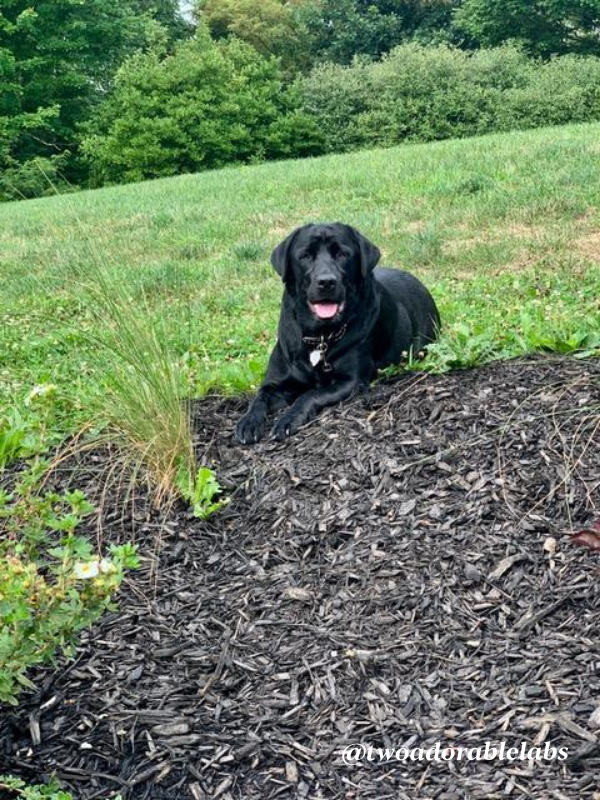
- Fast—starts relieving allergic dog itch within 4 hours, and controls it within 24 hours
- Has been prescribed for over 8 million dogs
- Effective—works right at the source to stop itching and relieve inflammation in dogs
- Not a steroid or antihistamine
- Can be used long-term for maintenance therapy or short-term
- #1 prescribed medicine for allergic itch in dogs
- #1 in pet owner and veterinarian satisfaction
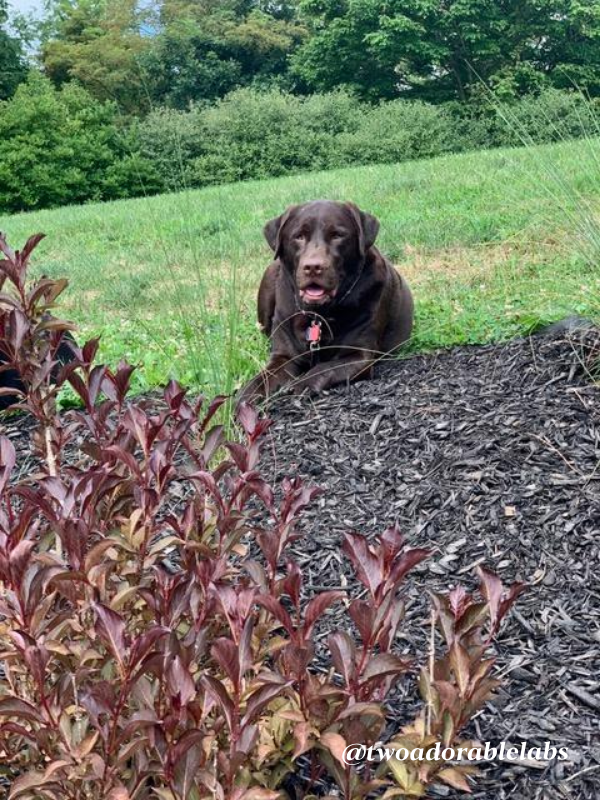
- Multifunctional
- Customized for size and stage
- Made with premium ingredients
- Designed by Vets
- Wheat-Free, Dairy-Free, Soy-free
- No Synthetic Colors or Flavors

- Sugars, such as fructose and glucose
- Enzymes needed to accelerate chemical reactions within the body
- Minerals like zinc, iron, manganese, phosphate, calcium, copper, sodium, magnesium, and potassium
- Vitamins: B complex, C, D, E, and K
- Antioxidants, such as phenolic acids and flavonoids
- Pollen grains that can be helpful with environmental allergies
Note: Keep in mind that most supermarket honey products have been processed to include high fructose corn syrup or other low-quality ingredients. Processing honey in this manner—especially heating it—negates many of its health benefits, so stick with raw, local honey or Manuka honey to reap the maximum benefits.
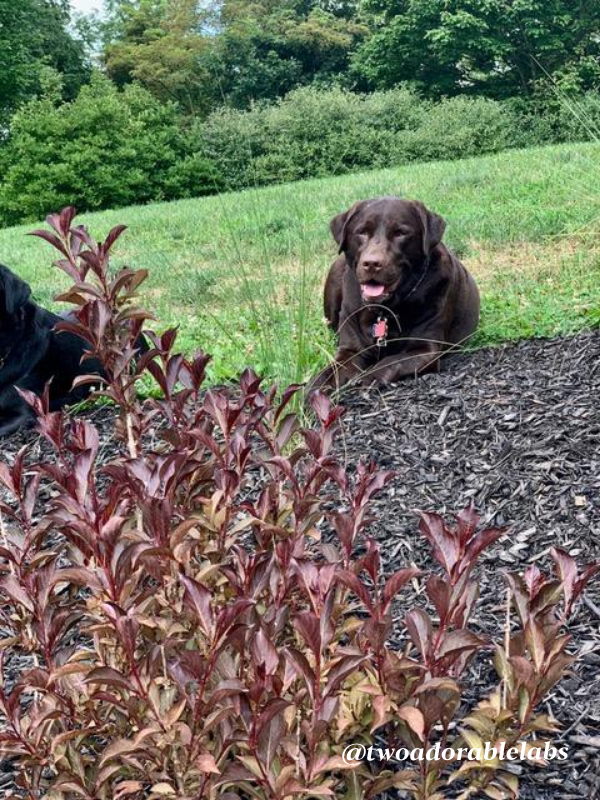
What canine conditions can be treated with honey?
Using honey in conjunction with prescribed medications from your vet can prove to beneficial:
Allergies — One of the most common medical conditions to affect dogs, allergies can be frustrating to treat. A multimodal approach employing several different tactics is often necessary to combat this condition. In addition to medications, prescriptions diets, and environmental modification, some holistic veterinarians may also add honey to the treatment protocol. The effectiveness of honey lies within the pollen collected by bees from different native flowers. Anecdotally, daily dosing of raw, local wildflower honey may help desensitize your dog’s immune system to environmental allergens, improving allergy symptoms.
Wound care — A variety of wounds, including minor burns, infections, hot spots, and pressure sores, can benefit from the application of honey. Applying pure Manuka honey can fight bacterial infection, reduce inflammation, and help regrow healthy new skin.
Kennel cough — This contagious respiratory infection can be caused by several cough-inducing pathogens, some of which are bacterial in nature. Due to its antibacterial properties, doling out Manuka honey to combat infection and soothe the throat may be helpful.
Digestion — Digestive issues occur frequently in dogs. Fortunately, honey is a safe, natural product that may help combat gastrointestinal diseases, such as gastritis, colitis, irritable bowel disease, and bacterial overgrowth. Honey’s antibacterial and anti-inflammatory properties may aid traditional treatments in soothing your pet’s irritated digestive system, in addition to balancing out the natural gut bacterial flora.
Energy boost — The sugar content of honey can give sluggish pets an energy boost. The natural sugars in honey are broken down more slowly than processed sugars and can increase healthy levels of energy.
Mobility improvement —The anti-inflammatory qualities of honey can help older pets move around more easily. Stiff, arthritic joints may be a little less sore with a daily helping of Manuka honey.
Note: Honey may appear to be a magical cure-all, but that is not the case! Often, it can be used in conjunction with appropriate veterinary treatment to provide the most effective care for your pet. Always consult your veterinarian before attempting to add honey to your dog’s treatment plan.
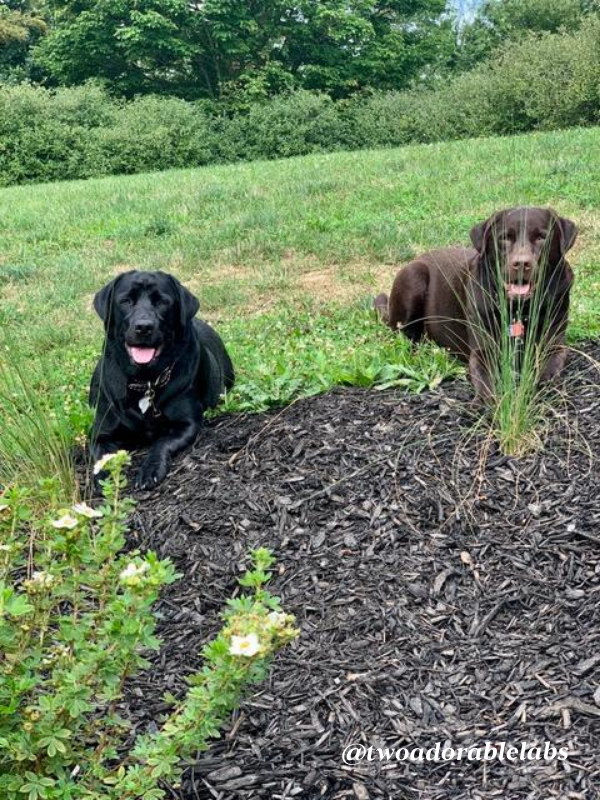
What are the negative side effects of using honey?
Diabetic dogs — Honey has a high glycemic index, and can raise blood sugar, so its use should be avoided in diabetic pets.
Puppies — Use of honey should be avoided in dogs less than one year old. Due to their immature gastrointestinal systems, puppies are more likely to fall ill from bacterial spores that can contaminate honey. Wait until your dog is an adult before adding honey to his diet. Even then, if your adult dog has a compromised immune system you’ll want to avoid feeding her honey.
Allergies to bees —Pets can develop an allergy to bee stings. Pets that are hypersensitive may have a reaction from simply ingesting honey.
Obese dogs — Honey should not be given to obese dogs given the high caloric value. So watch for weight gain in your dog and stop feeding them honey if they’re gaining weight.
Compromised Immune System – check with your vet if your pet has a compromised immune system as bacterial spores can contaminate the honey.
"Just trying to wake up and mom keeps taking pictures of me"
"I asked Maggie if she loved me. She had to think about it first". LOL

You Might Also Like
What Are The Nutritional Stages Over A Dog’s Lifespan?
Happy Wednesday everyone! It’s been a minute since I last posted. It’s been a crazy busy time for us and it doesn’t look like it’s going to stop any time soon but I didn’t forget about you. I’m back and ready to blog! One of my loyal readers has suggested I create...
Your Dog’s Zodiac Sign
Happy Wednesday everyone! Ever wonder what your pet's reaction means to something? Your Dog's Zodiac Sign is a fun post that sheds light on their behavior based on the month they were born. Jake and Maggie are Gemini's born June 8, 2017! The horoscope (see chart)...
The Stigma Surrounding The Pitbull Breed
Happy Wednesday everyone! Today on the blog we are talking about The Stigma Surrounding The Pitbull Breed. For those of you who have never owned a Pitbull, I want to tell you that they are a wonderful breed. So when I heard about the UK banning all XL bully dog...



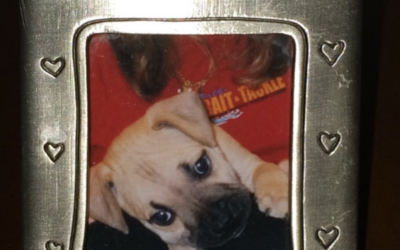
Very good info on the homeopathic use of honey for the doggos! I am glad Jake is feeling better and pray sweet Annabelle heals quickly ????
Thank you! Yes, prayers for sweet Anabelle and Jake is back to normal!
We always get the local honey. Honey coming from our own region hoping to better combat pollens from our area. Nice article! Happy Monday to you guys too!
Thank you. Yes, I have heard local honey is the best. Happy Monday!
I love this post! As the mom of Bentley, a golden lab, of course I adore the dog photos. 🙂 Thank you for the information, it is always an honor to care for our animal friends. Wishing you a blessed week! Lidy
Thank you so much! It truly is an honor to take care of the pups! Hugs to you and Bentley :-).